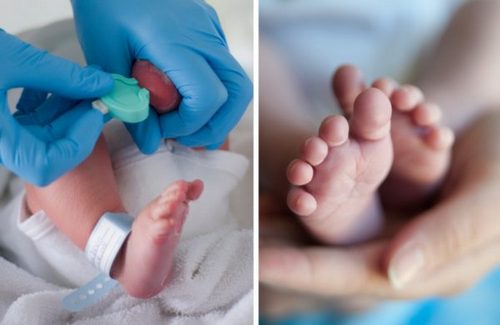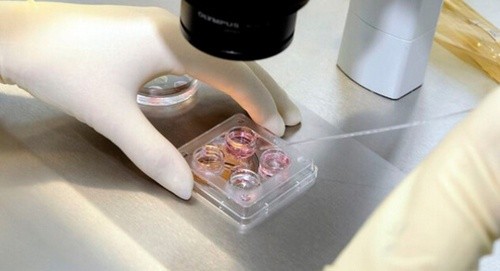Probably every expectant mother dreams of a quick birth.
Long contractions, accompanied by severe pain, few people are pleased. And how enviable to hear from friends that they “freaked out” for a couple of hours. But fast delivery is not a cause for joy, but for concern.
Consider why the rapid appearance of the baby is dangerous.
What is a rapid birth?
Rapid birth includes the birth process, lasting 3-6 hours for primiparous and 2-4 hours for multiparous. During this time, the body does not have time to prepare for the appearance of the baby, the cervical perineum is weakly opened, the bones are not prepared, despite the full opening of the cervix.
In addition, the fetus itself cannot take the correct position in such a short time, and under the influence of a strong uterine contraction it is literally pushed into the light, instead of a smooth appearance.
Rapid childbirth almost always carries a danger and can lead to very sad consequences for both the mother and the baby. But thanks to modern medicine and knowledge about the signs and causes of rapid labor, complications can be avoided.
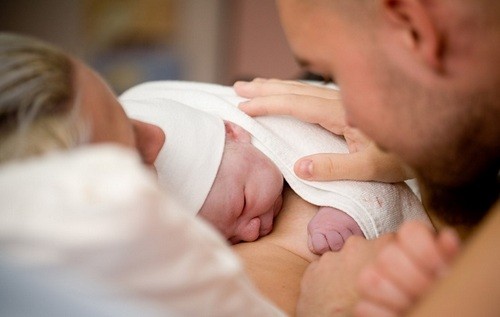
Signs of a quick birth
Recognizing a quick birth is not difficult – they begin quickly, literally taking a woman by surprise. Her pulse quickens, her breathing becomes confused, heavy, her activity decreases. Contractions are strong from the very beginning, lasting 10 seconds and are repeated every 2-3 minutes. Note that with normal birth, the first contractions are almost painless and are repeated at intervals of 20-30 minutes. Then the interval is reduced and only by the time of full opening of the cervix become strong and frequent.
There are also opposite signs of a quick birth – at first, lethargy is noted, labor pains are painless and not intense. But within an hour they grow, become frequent and painful. After another 2-3 hours, the uterus, under a strong contraction, begins to push the fetus, not yet ready to meet the environment.
Why is there a fast birth?
Rapid childbirth, as a rule, is a consequence of pathology in the body of a woman. Quite rarely, a child is born faster than the allotted time for no apparent reason.
The reasons for the rapid birth:
- Genetic predisposition. If a woman has quick deliveries in her family, it is very likely that she will see her baby too early.
- Gynecological diseases. Any, even minor inflammation of the reproductive organs can lead to rapid childbirth. For this reason, it is recommended to undergo a full examination and treatment before planning for pregnancy.
- Age of woman in childbirth. Women under the age of 18 and over 30 are at risk of rapid birth. In young women in childbirth, the reproductive system is not fully developed, it is not yet ready for bearing and giving birth to a child. In adult women, as a rule, chronic or cured diseases or abortions are observed, which negatively affects the work of the body.
- Pathology of gestation. Frequent interruption threats, late toxicosis, high blood pressure, swelling – all this does not pass without a trace.
- Disorders in the nervous system. Excessive excitability, nervousness can cause a quick birth.
- Excessive stimulation. If at the beginning of contractions, obstetricians administer too many drugs to stimulate labor, then the fetus is likely to appear quickly.
- Pathology of organs. The absence of the fallopian tube, ovary, and other pathologies of the reproductive system can affect the birth process.
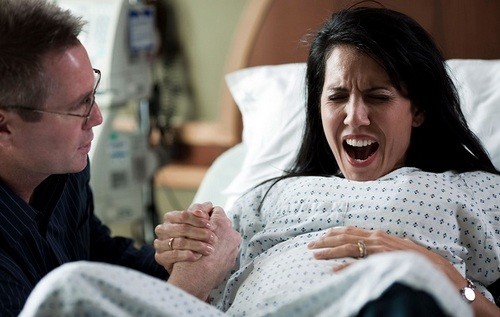
What are dangerous swift births for a mother?
Faster childbirth is dangerous, primarily for the mother. In rare cases, the rapid appearance of the baby leaves no consequences. So, we consider the main risks associated with quick delivery:
- Severe bleeding associated with rupture of the uterus and cervix. In this case, childbirth ends with surgery. Sometimes it is not possible to preserve organs, which leads to infertility of a woman.
- Perineal rupture, if the genitals did not have time to prepare for the appearance of the child, then the neck and external organs suffer. This is probably the most “pleasant” consequence, since it only requires suturing and further care for them.
- Divergence of the bones of the pelvis.
- Detachment of the placenta, accompanied by severe bleeding.
- Delayed placenta, which requires cleansing after childbirth.
Of particular danger to a woman’s life is severe bleeding. If timely assistance is not provided, the consequences can be very tragic.
Does the child suffer?
A child from rapid childbirth suffers no less than his mother. The consequences for the fetus may be as follows:
- Oxygen starvation, which leads to impaired brain and nervous activity.
- Damage to bones and spine.
- Cerebral hemorrhage.
- Intraorgan hemorrhages.
In addition to the listed consequences, the child suffers from a sharp change in atmosphere. Gradually moving along the birth canal, the fetus prepares for a new environment, where he will need to take a first breath. Rapid childbirth can lead to asphyxia, when the baby needs oxygen supply with special equipment.
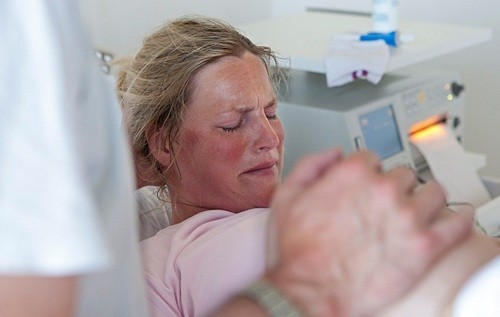
How to prevent rapid childbirth?
Even during pregnancy, specialists can see a woman’s predisposition to fast childbirth. In this case, the expectant mother is hospitalized ahead of schedule and oversee the preparation of the organs.
If it was not possible to determine the predisposition in advance, then drugs are introduced with the first intense contractions to reduce labor activity. A woman should be under the close supervision of doctors, ready to make a quick and correct decision to reduce the risk of the consequences of a quick birth.
Tips for expectant mothers
Unfortunately, nobody is safe from prompt childbirth. And in order to at least slightly reduce the likelihood of a baby rapidly appearing in the world, it is required to observe several rules :
- Do not start diseases – if they are not cured before pregnancy, then you should not refuse treatment during the gestation period.
- Do not be nervous – healthy nerves, the absence of psychosis and other mental disorders is the key to the health of the future baby.
- Refuse from physical activity – walking in the fresh air and gymnastics for pregnant women will be quite enough. Expectant mothers need to abandon active sports for the health of the baby.
- Timely visit the gynecologist – careful monitoring of the condition of the child and the expectant mother will help to avoid the negative consequences that will suffer a rapid birth.
But you should not wind up yourself in advance and think about the likelihood of a rapid birth. Fortunately, they occur in 1 out of 100 cases, and the consequences are even less common. Therefore, relax, rest, listen to pleasant music and tune in to a good completion of pregnancy, leaving no room for negative thoughts.


